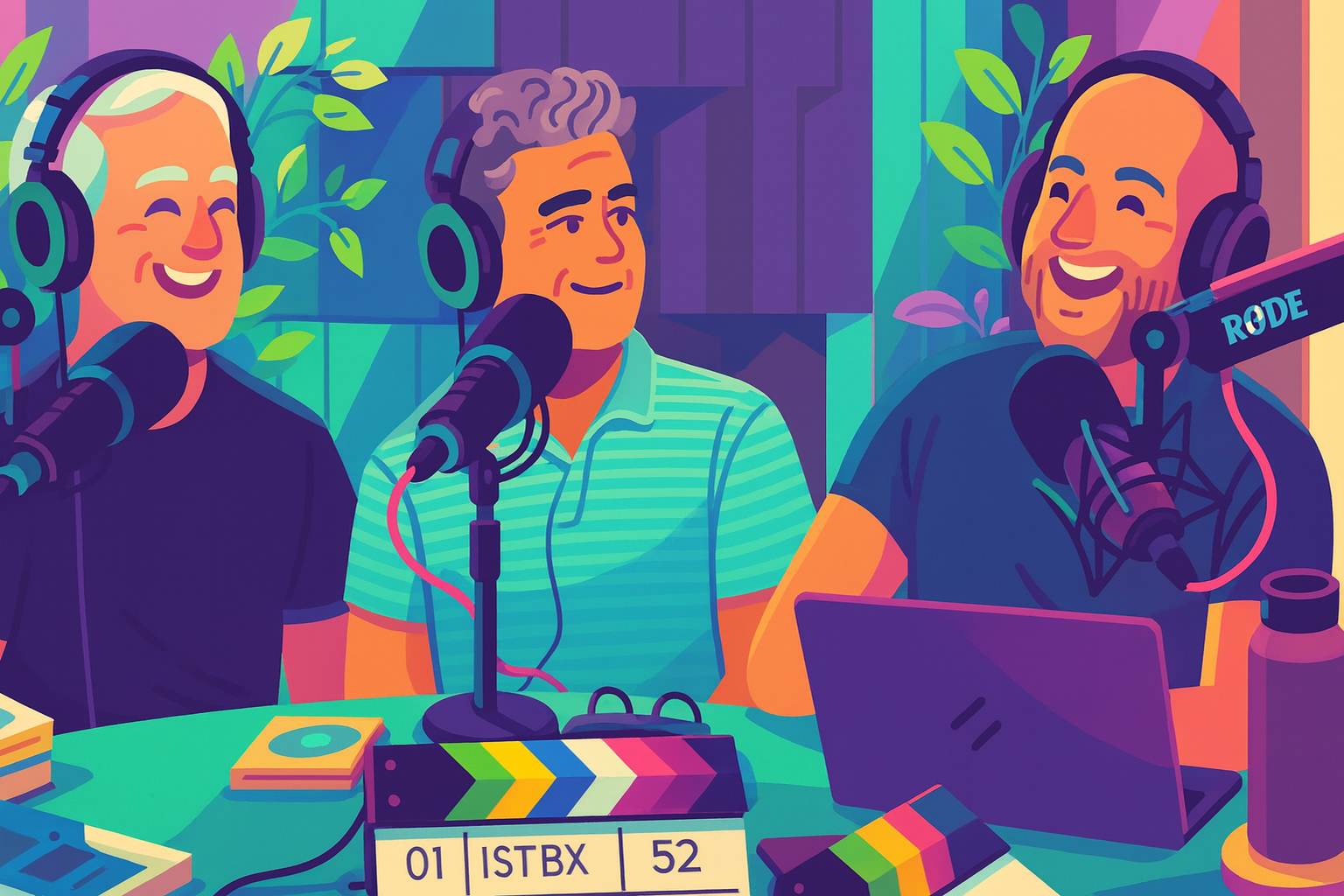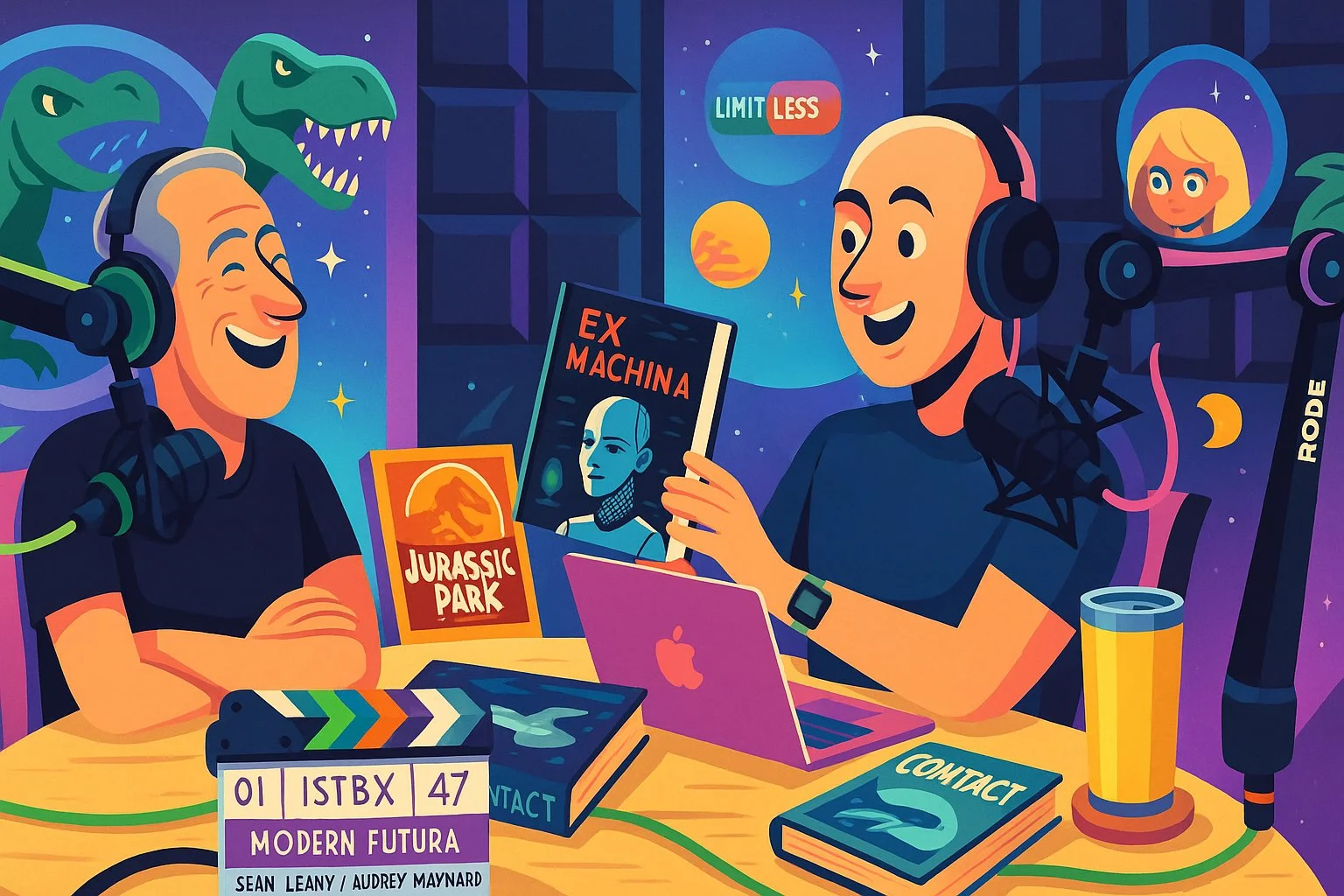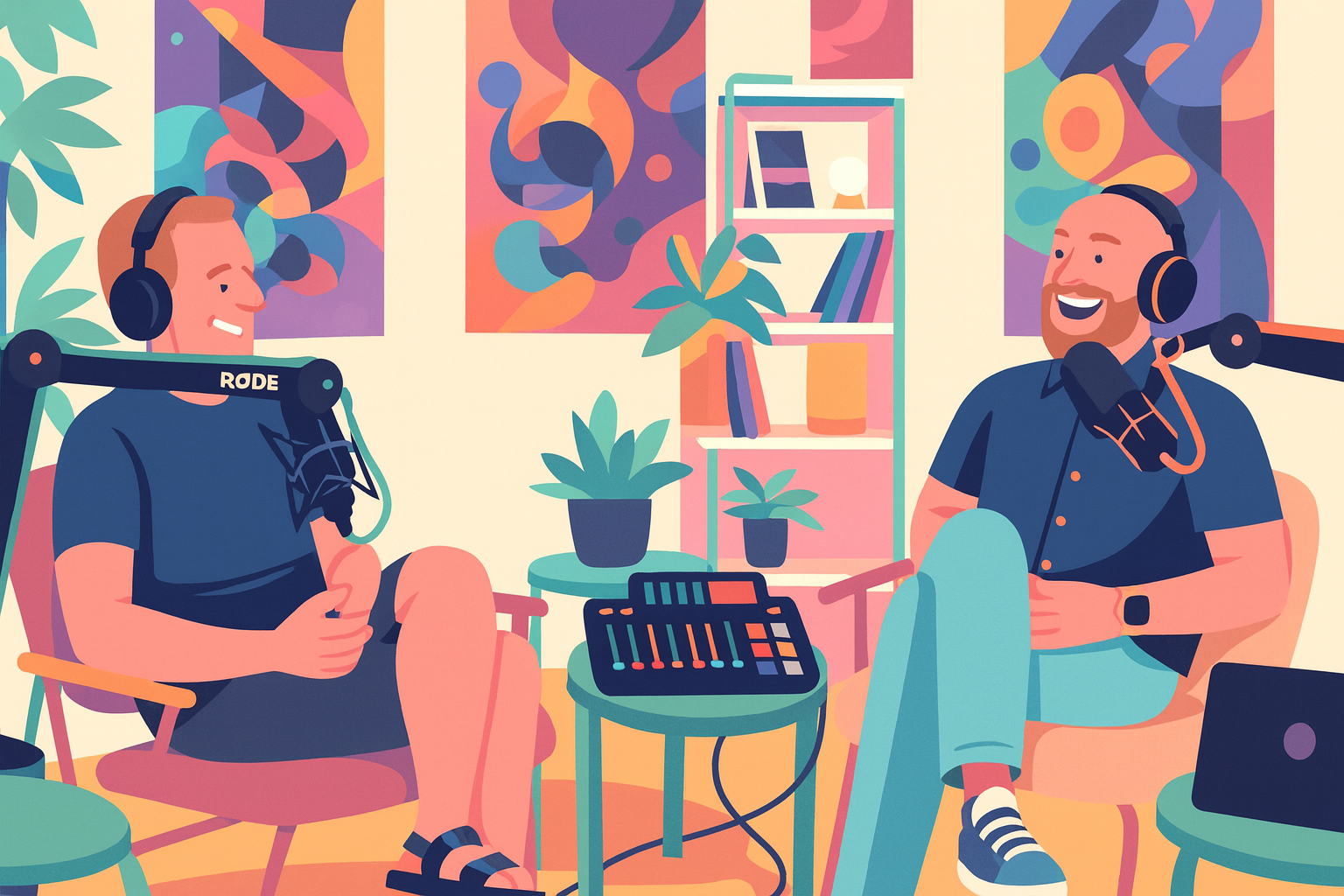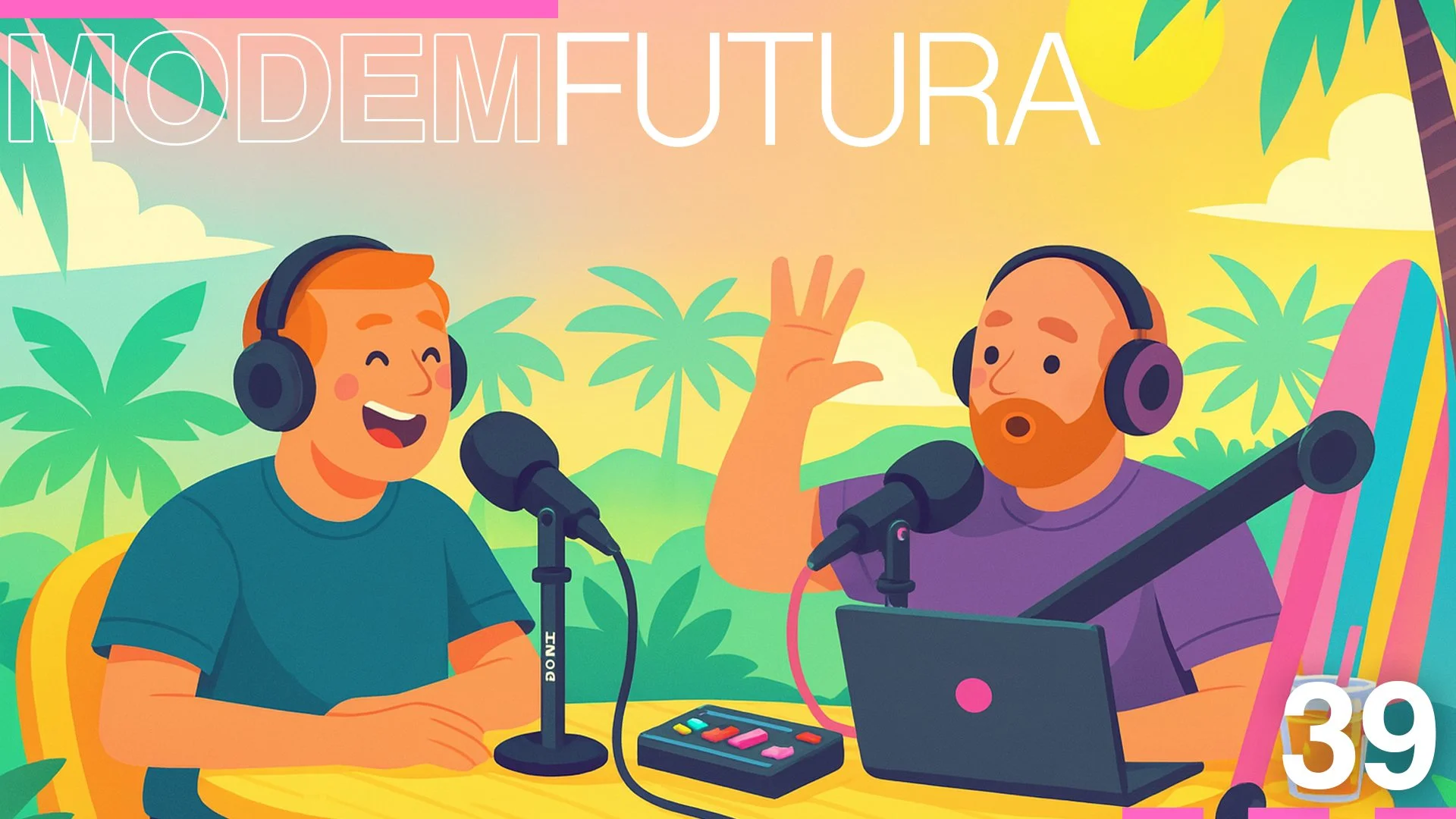Generated by ChatGPT
How We Really Feel About AI
Artificial intelligence isn’t just reshaping industries—it’s reshaping emotions. In our latest episode of Modem Futura, Andrew Maynard and I unpack Pew Research Center’s new international survey on how people view AI across 25 countries. The results are striking: while AI dominates headlines, 61 percent of respondents have heard “little or nothing” about it—and in the U.S., more people are concerned than excited.
We explore what this says about the bubbles we all inhabit. In our professional worlds, AI feels inescapable—a “black hole” pulling every conversation toward it. But outside these circles, many remain unaware of how deeply algorithmic systems already shape their lives. This disconnect raises profound questions about agency: if people don’t understand a technology that governs so much of modern life, who’s really steering the future?
The conversation also turns to trust. Europeans report more faith in their governments to regulate AI responsibly than Americans do—a difference that mirrors the EU’s proactive stance on ethics and guardrails. In contrast, U.S. policy remains fragmented, driven more by economic competition than by social cohesion. That tension—between speed and safety, innovation and inclusion—is at the heart of our discussion.
Dangers of Atlas (it's more the world he's holing... its all of your data!)
We then zoom in on universities. As public institutions, we argue they must act as transparent laboratories for AI exploration—spaces where successes and failures alike can be shared openly. The path forward isn’t boosterism; it’s honesty. We can’t earn public trust without showing our messy work. Adding to this - we explore OpenAI’s newly released Atlas browser and its privacy implications - and stumble upon a very shocking realization while recording - that private student data is easily exfiltrated when using LMS platforms such as Canvas while in this browser. What started as a curious road test of OpenAI’s new Atlas browser turned into a genuinely alarming discovery. As we installed and explored Atlas, the first surprise was how quickly the “privacy” pitch unraveled. Despite promising user control, Atlas behaved much like any other data-hungry app—prompting unusual permissions and positioning itself between us and the open web. That sparked a bigger question: if your browser is the main keyhole to the internet, what happens when an AI system sits in the keyhole, quietly learning from everything you do? (including sending and processing private user data - think ANYTHING that comes and goes from your activity on the web). The situation quickly got worse as I was unable to get Atlas to show me any particular websites security certificate. Specifically, at the time of testing (I hope they patch this soon) I could not see the sites SSL/TSL or HTTPS certificate (this is the little lock icon in most browser URL's) that tells you and the browser that your connection to the sites servers are "safe" via web-standard encryption protocols. You know, for things like your bank account info, passwords, and any other data you want to send or receive. The takeaway? Treat ATLAS like a red hot security hole for you and any organization or persons connected to you via the internet. Think twice before using this browser - as EVERYTHING you do on the web is potentially egress'd (fancy word for taken) – so until there are transparent safegaurds in place, the safest assumption is that anything you open in an AI browser like Atlas could be seen, summarized, and stored beyond your intent.
And because no Modem Futura episode is complete without a bit of speculative play, we end with Futures Improv, where we imagine AI zombies, memory economies, and spaghettified timelines—all to remind ourselves that foresight and humor often travel hand in hand.
If you care about how humanity and technology co-evolve, this episode offers a grounded yet playful map of where we stand—and where we might go next.
Subscribe and Connect!
Subscribe to Modem Futura wherever you get your podcasts and connect with us on LinkedIn. Drop a comment, pose a question, or challenge an idea—because the future isn’t something we watch happen, it’s something we build together. The medium may still be the massage, but we all have a hand in shaping how it touches tomorrow.
🎧 Apple Podcast: https://apple.co/4nuRsit
🎧 Spotify: https://open.spotify.com/episode/04NLQcVfJpoM444bQQfQ42?si=b9adf3740a0944fe
📺 YouTube: https://youtu.be/tYoLRZH5iH8
🌐 Website: https://www.modemfutura.com/










